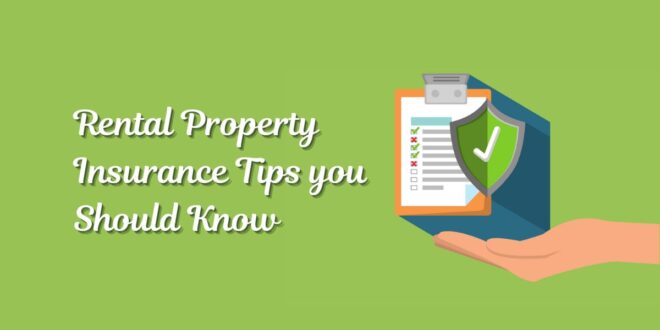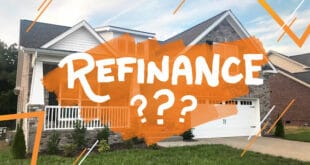Recently, there has been a rise in both landlords and tenants. It’s important to understand the insurance options available for rental properties. Here are our helpful rental property insurance tips for you to consider.
What is Rental Property Insurance?
Rental property insurance, or landlord insurance, is a form of coverage tailored for individuals or businesses that lease residential or commercial properties to tenants. This insurance safeguards the property owner’s investment and offers financial protection against the various risks involved in renting out properties.
Also read: Pet Insurance and Top 10 Affordable Companies in the USA
What Rental Property Insurance Covers
- Dwelling Coverage: This protects the physical rental property itself, such as the building structure, from covered perils like fire, wind, hail, and certain water damages. It helps pay for repairs or rebuilding costs if the property is damaged or destroyed.
- Other Structures Coverage: This covers detached structures on the property, such as garages, sheds, or fences, from covered perils.
- Loss of Rental Income: If the rental property becomes uninhabitable due to a covered loss, this coverage reimburses the landlord for lost rental income during the time it takes to repair or rebuild the property.
- Liability Protection: Rental property insurance provides liability coverage for claims of bodily injury or property damage that the landlord may be legally responsible for, such as a tenant or visitor getting injured on the premises.
- Fair Rental Value: This coverage pays for the rental value of the property if it becomes uninhabitable due to a covered loss, allowing the landlord to maintain their rental income stream while repairs are made.
Additional coverages that may be included or purchased as endorsements include:
- Landlord Contents Coverage: Protects the landlord’s personal property used for maintaining the rental property, such as appliances, lawnmowers, or tools.
- Building Code Coverage: Covers the additional costs of bringing the rental property up to current building codes during repairs or reconstruction after a covered loss.
- Natural Hazards Coverage: Offers protection for losses caused by specific natural hazards like floods, earthquakes, or sinkholes, which are typically excluded from standard rental property policies.
Recommended: Top Travel Insurance Companies in the USA
Risk of not Having a Rental Property Coveraage
Not having rental property insurance exposes landlords to significant risks that could potentially result in substantial financial losses. Here are some key risks of not having proper insurance coverage for your rental property:
- Without dwelling coverage, you would have to pay out-of-pocket for repairs or rebuilding costs if your rental property suffers damage from events like fires, storms, burst pipes, or other covered perils. These expenses can easily run into tens or hundreds of thousands of dollars.
- If your rental property becomes uninhabitable due to a covered loss, you would lose out on rental income during the repair period. Without loss of rental income coverage, this could severely impact your ability to cover ongoing expenses like mortgage payments.
- As a property owner, you could be held legally liable for injuries sustained by tenants or visitors on your premises. Without liability protection, you would have to pay for legal fees, settlements, or judgments out of your own pocket, which could deplete your assets.
- Regular homeowners insurance policies typically don’t cover damage caused by tenants. Without landlord insurance, you may have to absorb the costs of repairing any intentional or accidental damage caused by your renters.
- After a covered loss, you may be required to bring your rental property up to current building codes during repairs or reconstruction. Without specific building code coverage, these additional costs would come out of your own pocket.
- Standard rental property policies often exclude coverage for natural disasters like floods, earthquakes, or hurricanes. Without additional coverage, you could face immense repair bills if your property is damaged by these events.
- Your rental property likely represents a significant investment. Without proper insurance, that investment is at risk from a wide range of potential perils that could severely impact its value or income-generating potential.
Read also: Cyber Insurance for Businesses you Should know
Rental Property Insurance Tips
Here are some helpful tips for landlords when it comes to rental property insurance:
- Evaluate the specific risks your rental property faces based on factors like location, age of the building, number of units, etc. This will help determine the appropriate types and amounts of coverage you need.
- Don’t just go with the minimum required coverage. Higher limits for dwelling, liability, and loss of rental income can better protect your investment and income stream.
- If you provide any furnishings or appliances for your rental units, landlord contents coverage will protect those items in case of theft, damage, or covered perils.
- Insure your rental property for its full replacement cost value rather than actual cash value. This ensures you have enough to rebuild entirely if there’s a total loss.
- Consider an umbrella liability policy that extends beyond the limits of your basic rental property liability coverage for additional asset protection.
- If you own multiple rental properties, you may be able to bundle them under one policy and secure discounted rates.
- Higher deductibles can lower your premiums, but make sure the deductible amount is something you could comfortably cover out-of-pocket if needed.
- Make it a lease requirement for tenants to carry renters’ insurance to avoid being held liable for their belongings or potential damages.
- Proper maintenance and timely repairs can help prevent losses and may make you eligible for lower insurance rates.
- Rental property insurance rates can vary significantly between companies. Get quotes from multiple providers to find the best coverage at the most affordable price.
Also read: Life Insurance and Why You Should Have One






